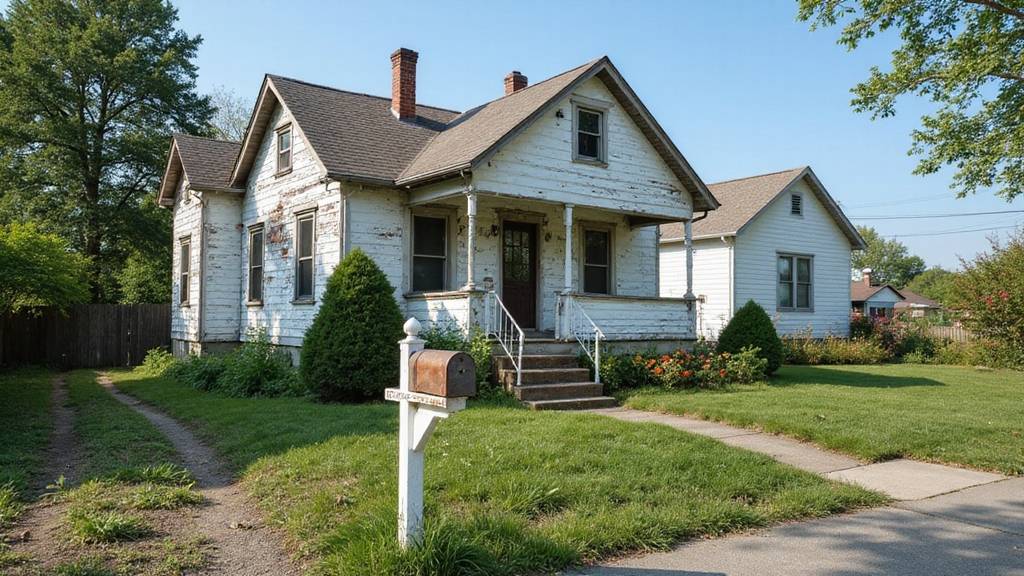Selling a house after someone passes away is not the same as a regular real estate sale. Many people find probate rules confusing and stressful. Even simple decisions can become complicated when the court gets involved.
The legal process adds delays, paperwork, and extra steps that can frustrate even experienced sellers. Heirs may disagree, which can slow things down even more. Many feel overwhelmed because deadlines and requirements are strict.
Selling a probate house is more complex and demanding than a standard sale, with legal steps and court oversight at every turn. But you can handle the process smoothly with the right guidance and information.
Learning the key differences helps you avoid costly mistakes. This blog will give you clear steps and expert tips to make probate home selling much easier.
Key Takeaways
- Probate sales require court approval and legal oversight, while standard sales proceed without court involvement.
- Probate sales usually take longer due to court scheduling, hearings, and required approvals, unlike the faster timelines of standard sales.
- Only a court-appointed executor or administrator can sell a probate property; heirs cannot initiate the sale directly.
- Probate properties are sold “as-is” with limited contingencies, while standard sales allow for more negotiation and buyer protections.
- Sale proceeds in probate are distributed after debts are settled and court requirements are met, whereas standard sale proceeds go directly to the seller.
Understanding Probate: What It Means for Homeowners

Probate is the legal process for handling a home after the owner dies. It decides who gets the property and pays any debts. This process is different from a regular home sale. The court checks if there is a will and follows its instructions. If there is no will, state laws decide who gets the house. Creditors can ask for payment from the estate during probate.
Heirs receive property only after debts are paid. Probate follows set timelines and court rules. You must meet all legal steps to settle the estate properly. Understanding legal procedures helps ensure the process is completed correctly. Additionally, proper property classification is essential to determine how the estate is divided and to prevent disputes.
Legal Authority: Who Has the Right to Sell
You need to distinguish between executor and heir rights, as only the court-appointed executor or administrator holds legal authority to initiate a sale. You’ll also need to secure probate court approval before transferring title, ensuring all statutory requirements are satisfied.
This process safeguards the estate’s interests and confirms the legitimacy of the transaction. Additionally, understanding property ownership rights is essential to navigate the probate sale process effectively. Knowing local regulations can help streamline the process and prevent delays.
Executor Versus Heir Rights
The executor is the only person who can sell a probate property. Heirs may inherit ownership, but they cannot sell, list, or transfer the property themselves. The executor follows court rules and the will.
An executor handles everything about the sale, including listing and closing. Heirs get the money from the sale but cannot choose the buyer or set the terms. If the will names a specific executor, the sale process may run more smoothly.
Estate planning documents may affect who becomes executor. If you are an heir, your rights depend on the will and estate plan. Only the executor can act for the estate during probate.
Probate Court Approval
A probate house cannot be sold until the court gives approval. This approval gives the executor legal authority to sell the property. Selling without it is not allowed.
The probate court checks if you have followed all legal steps. These steps include notifying heirs and creditors. The court also reviews if the sale terms benefit the estate.
Court approval may require a hearing. At the hearing, people can object or new buyers can join. If you skip this step, the sale may be invalid.
Only the court can give final permission to sell. If you do not get approval, you risk legal problems. This can also delay settling the estate.
Title Transfer Process
Legal authority to transfer a probate property’s title comes from the court. The court selects a person, called a personal representative, to handle the estate. Only this person can transfer the title.
The court gives this authority through official papers called “Letters Testamentary” or “Letters of Administration.” Title companies need these papers to prove the representative has the right to transfer the property. If you try to transfer the title without court approval, the transfer is not valid.
If you plan to sell a probate house, wait until the court appoints a representative. The representative is the only one who can sign the necessary documents. Any transfer without proper authority may cause legal problems.
Court Supervision and Approval Requirements
Selling a house in probate requires court supervision and approval. The court oversees each step to protect heirs and creditors. You cannot sell the house without following these legal steps. A thorough review process by the court ensures that proper documentation is in place and that all contractual obligations are met before proceeding.
Additionally, the court’s involvement helps ensure compliance with applicable laws, such as the six-year statute of limitations for debt collection, which can influence the timing and process of the sale. You must file a petition with the court before selling.
This petition includes sale terms and the buyer’s details. The court checks if the sale price is fair. Court supervision and approval are essential when selling a house in probate, ensuring protection for heirs and creditors at every step.
If the court approves, it may require a public notice or open bidding. Some courts hold a bidding process in front of a judge. Only after court approval can you proceed to escrow and closing.
Court supervision ensures the sale is transparent and fair. This process protects estate value and prevents unauthorized transfers, thereby safeguarding the interests of all parties involved. If you skip these steps, the sale may be invalid.
Timeline Differences Between Probate and Standard Sales

You’ll notice that probate sales often encounter significant timeline extensions due to mandatory court approval, which introduces unpredictable delays. Coordinating multiple heirs can further complicate scheduling and decision-making, impacting transaction velocity. Compared to standard sales, the overall process length in probate cases is notably longer, requiring careful expectation management.
Court Approval Delays
Probate property sales often take longer because the court must approve each step. Regular home sales usually close within 30 to 45 days. In probate, court involvement can add weeks or months to the process.
The court schedules hearings to review documents and may ask for more information. If the court’s schedule is busy, your hearing might be delayed. Approval from the judge is always needed before the sale can finish.
If any sale terms do not follow probate laws, the court may require changes. Buyers and sellers must wait until all approvals are complete. Delays are common and are hard to predict in probate sales.
Heir Coordination Timeline
Probate sales take longer because all heirs must agree before moving forward. The process is more complicated than a regular sale. If you do not coordinate with everyone, the sale can be delayed.
Heirs must review estate documents, confirm who the beneficiaries are, and sign paperwork. Disagreements about price or asset division can cause delays. If heirs argue, negotiations may take weeks or months.
Multiple parties make decisions, not just one owner. Each heir has legal rights and different interests. This means more paperwork and frequent communication.
If you do not resolve conflicts, contracts may be delayed or cancelled. Legal requirements must be followed throughout the process. Efficient coordination is key to a successful closing.
Sale Process Length
Probate sales usually take longer than regular home sales. The process involves several legal steps before the home can be sold. Multiple heirs and court approvals add to the delays.
If the estate is not settled, the title cannot transfer. Disagreements among heirs can cause further delays. Unclear or missing estate plans also make the process longer.
Court confirmation is a required part of probate sales. This step often pushes back the closing date. Probate timelines can stretch for several months or more.
Property Valuation and Appraisals

A property valuation is required for a probate house sale. Probate courts need a formal appraisal to set the estate’s value. This helps with taxes and legal matters. Lien clearance is also essential, as any existing liens must be resolved before the sale can proceed smoothly.
A certified appraiser must do the valuation. The appraiser checks similar sales, property condition, and special legal issues. This process makes things clear for heirs and creditors.
If you compare probate sales to standard sales, differences appear. Probate sales need court approval and a licensed appraiser. Standard sales allow more flexibility and informal pricing. Hassle-free process options and transparent offers are common in non-probate transactions.
Marketing a Probate Property
Marketing a probate property requires a clear strategy. You must follow legal rules and consider timing because of the probate process. Buyers should know they may face extra steps compared to a regular sale.
You can attract more buyers by mentioning the property’s investment potential. If you work with agents familiar with probate sales, the process will be smoother. Agents can also help avoid legal mistakes.
List the property on several platforms, such as MLS and probate-focused websites. Traditional marketing channels are also useful for reaching more buyers. If you use these methods, you will increase your chances of getting good offers.
Additionally, understanding inheritance laws and probate requirements can help ensure your marketing efforts comply with legal procedures and avoid delays. Being aware of disclosure obligations related to pest or termite damage ensures transparency and protects against potential legal issues during the sale.
Disclosure Obligations and Property Condition
Probate sellers must follow the law and share important details about the property’s condition. You must tell buyers about any problems you know, even if the home is sold “as-is.” If you fail to disclose known issues, you could face legal trouble.
Sellers must reveal defects they know about, such as water damage, mold, or pest infestations. If you learn about issues from inspections, papers, or neighbors, you must share them. You do not need to guess or make assumptions, but you must be honest about what you know. Full disclosure is essential to maintain transparency and trust in the transaction.
Some states require you to disclose if someone died on the property. Code violations and structural issues must also be shared. Buyers use this information to decide if they want the home and to negotiate. Additionally, understanding disclosure obligations is essential to avoid future legal disputes.
Offers and Bidding Process
When you review offers on a probate property, you must account for court approval requirements that can impact both timing and negotiation advantage. You’ll notice offer contingencies often differ from standard sales, with fewer allowances for inspection or financing.
Understanding these procedural distinctions ensures you manage buyer expectations and comply with statutory mandates. Additionally, working with trusted title companies can facilitate a smoother transaction process, especially since they handle all paperwork and closing details to ensure compliance and efficiency.
Court Approval Requirements
Court approval is required before a probate home sale is final. The court must review and approve the accepted offer. This adds a legal step not found in normal home sales.
The judge checks if the offer is fair and follows all legal rules. If the offer meets requirements, the court sets a hearing date. At this hearing, other buyers can place higher bids.
This process helps protect the rights of everyone involved. The court makes sure the sale meets market value and legal standards. If any step is missed, the sale can be delayed or denied.
Court approval ensures the sale is clear and fair for all parties. If you follow these steps, you help avoid legal issues. Beneficiaries and buyers both benefit from this oversight.
Offer Contingencies Differences
Offer contingencies in probate sales are more limited than in standard real estate deals. Probate sales usually do not allow for negotiation of contingencies after court approval. Buyers must accept the property “as-is” once the court approves the offer.
Typical real estate deals often include inspection, financing, and appraisal contingencies. Probate transactions rarely allow these options. The court prefers a simple and transparent process.
If there is an overbidding phase, new offers must be unconditional. Buyers cannot add contingencies at this stage. Due diligence must be completed before submitting an offer.
If you buy through probate, you have limited ability to change terms later. You should be sure of the property’s condition before making your bid. There is little recourse after the court accepts your offer.
Role of the Probate Attorney
A probate attorney helps you follow the law when selling a probate house. This legal expert makes sure every step meets court rules. If you have questions about the process, a probate attorney is the right person to ask. The attorney reads and follows court orders carefully.
They fill out and file the necessary forms with the court. If any documents need special wording, the attorney will prepare them. Court hearings may be required for some probate sales. The attorney represents you in court and answers any questions from the judge. If there are objections, the attorney will address them. With a probate attorney’s help, you avoid common mistakes.
The attorney’s guidance can help the sale move forward without delays. If you want a smooth sale, working with a probate attorney is important. Additionally, their knowledge of local market expertise ensures the sale aligns with current regulations and conditions in Stuarts Draft, VA. Understanding probate sale requirements can also streamline the process and prevent potential legal issues.
Handling Multiple Heirs or Beneficiaries
When a probate house has more than one heir, you must respect each person’s legal rights before selling. The will or trust usually explains who owns what. Executors must follow these instructions closely.
You must tell all beneficiaries about the sale and get their consent if needed. Executors should keep everyone updated and share important documents. This helps avoid misunderstandings.
If heirs disagree about the sale, a dispute may happen. In that case, open communication is important. You may need a lawyer to help solve any problems or explain unclear instructions.
Probate sales have strict court rules and deadlines. Executors must follow these rules to protect everyone’s rights. Courts supervise the process to make sure it is fair for all beneficiaries.
Distribution of Sale Proceeds
Sale proceeds are divided among heirs or beneficiaries after property ownership changes. The division must follow the will, trust, or state laws. Money is distributed only after all costs and debts are paid.
First, the estate pays all outstanding debts, such as mortgages or liens. If there are creditor claims, these must be settled before anyone receives money. Failure to pay debts can delay or stop distribution.
Next, funds are split according to the estate documents. If there is no will or trust, state laws decide who gets what. Heirs should check the estate plan or law before expecting payment.
Proper record-keeping is necessary at each step. All payments and receipts should be logged clearly. Good records prevent confusion or disputes later.
Tax Implications and Liabilities
You must evaluate capital gains implications based on the step-up in basis rules that apply to inherited property. It’s essential to determine whether any inheritance tax obligations arise, depending on the jurisdiction and estate value. By addressing these tax liabilities early, you mitigate the risk of compliance issues during the probate house sale process.
Capital Gains Considerations
Capital gains taxes apply when you sell a probate house for more than its value at inheritance. The tax is based on the property’s market value on the date the owner died. This amount is called the “stepped-up basis.”
The stepped-up basis lowers your taxable gain because it resets the property’s value at inheritance. If you sell the house soon after inheriting, your capital gain may be small. You pay tax only on the difference between the sale price and this new value.
Most inherited homes qualify for long-term capital gains rates, even if you owned them for a short time. If you make improvements or pay closing costs, you can deduct these expenses from your gain. Careful record-keeping helps lower your tax bill.
If you want to reduce capital gains taxes, consider estate planning strategies. Understanding these rules helps you avoid paying more tax than necessary. Always check with a tax professional for specific advice.
Inheritance Tax Responsibilities
In the United States, heirs do not pay federal inheritance tax. Some states do have inheritance taxes, but most do not. You must check the laws in the state where the deceased lived.
Tax rates and rules depend on your relationship to the person who died. If the estate is large or there are many heirs, planning ahead helps reduce taxes. You should file any required tax forms on time.
If you do not handle these taxes, you might face penalties or delays. These issues can slow down the probate process. Delays may also affect how quickly you receive your share of the estate.
Dealing With Outstanding Debts and Liens
Outstanding debts and liens matter because they must be resolved before you can sell a probate property. Probate courts require all debts and liens to be paid before the property changes ownership. If you do not clear them, the sale cannot go through.
You should start by listing all debts related to the property. These can include mortgages, tax liens, and unpaid bills. Each debt must be identified to avoid delays.
Liens must be settled or paid in full before closing. Title companies will check for any unpaid debts or liens. If they find any, they will not approve the sale until these are resolved.
You need to keep records that prove all debts and liens have been cleared. These documents show buyers and the court that the title is clear. If you have these ready, the probate sale process goes smoothly.
Common Challenges and How to Overcome Them
Probate real estate deals come with common problems like title issues, heir disagreements, and court delays. These challenges can slow down or even stop the sale if not handled well.
Title defects are a frequent problem. You should get a title search early and fix any issues before listing the property. Clearing up these problems upfront helps avoid last-minute setbacks.
Heir disputes may cause long delays. If heirs disagree, use clear communication and show estate planning documents to explain the deceased’s wishes. This step can help prevent arguments and confusion.
Court approval often takes time because of missing paperwork or appraisal problems. If you prepare complete and accurate documents, you can speed up the process. Getting a certified real estate appraisal early also helps.
A probate attorney and a real estate agent with probate experience are helpful. They can guide you through legal steps and reduce risks. If you work with these experts, you are more likely to avoid costly mistakes.
Conclusion
If you are selling a probate house, you will face more steps than a standard home sale. Probate sales often take longer because of court rules and legal requirements. If you understand these steps, you can avoid common problems and keep the process moving forward.
If you want to avoid delays and extra paperwork, consider selling your probate house for cash. When you work with a cash buyer, you do not need to wait for bank approvals or worry about repairs. This option may help you close quickly and reduce stress.
If you are ready to sell, we can help. At Align Real Estate Solutions, we buy houses for cash and simplify the probate process. Contact us today to see how we can assist you.
Author
-

Zach Koops is co-founder and Real Estate Success Manager at Align Real Estate Solutions, serving homeowners across Virginia since 2024. With a passion for real estate and a heart for people, Zach has built his career around helping sellers navigate tough situations—foreclosure, inheritance, relocation, repair-overload—with clarity and compassion. He’s known for being straightforward, steady under pressure, and deeply invested in relationships. Outside of work, he spends his time as a husband and father, enjoys the outdoors in Shenandoah Valley, loves singing on stage, and constantly seeks growth through reading and new experiences.









